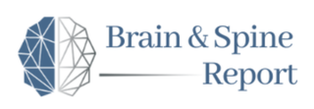|
We used a nationwide survey to identify concerns of med students relating to neurosurgical education during Covid-19. For medical students interested in pursuing neurosurgery as a specialty, educational policies surrounding Covid-19 present unique challenges. Because neurosurgery is such a competitive specialty, medical students often need to be highly engaged and productive early on in medical school to build strong residency applications. However, with the advent of social distancing and the mass sidelining of medical students from the neurosurgical OR, exposure to clinical neurosurgery has been significantly restricted during the pandemic. Since early March, medical institutions began the process of locking down basic research labs and cancelling clinical experiences for students such as clerkships, neurosurgery electives, and sub-internships. However, in the midst of these changes, there lacked a sense of cohesion between academic institutions and organized neurosurgery, leaving students in a state of uncertainty regarding how these changes would affect their neurosurgical education and eventual residency applications. Using a nationwide survey, we set out to identify the concerns of U.S. medical students relating to neurosurgical education during the Covid-19 pandemic and capture how their clinical and research experiences were being impacted across the country. Major Findings from a Nationwide Survey of Medical Students We distributed our survey to medical students who have previously registered for Brain and Spine Group’s Medical Student Neurosurgery Training Camps. We analyzed 127 complete responses from students at 56 different medical institutions and 27 states across the U.S. Students were most concerned about how Covid-19’s impact on research conferences, clinical experience, and board exam scores was going to affect their neurosurgery residency application. Results show that M3s and those entering sub-internships have been hit particularly hard by mass cancellations during this time. 91% of M3 students reported concerns about sub-internships, while 74% were concerned about letters of recommendation. These concerns coincided with the finding that 76% of M3s reported at least one cancelled or postponed neurosurgery rotation with cancellations at 25 different institutions. Additionally, we found that students were significantly more likely to take a year off from medical school after Covid-19 than before the start of the pandemic. This is reflective of student uncertainties regarding the pandemic. It is reasonable to think that students are more likely to take this time off to make up for missed opportunities in the lab and in the clinic during the pandemic. When asked what educational interventions would be most helpful during this time, M1s and M2s rated virtual mentorship pairing the highest, while M3s and M4s cited virtual surgical skills workshops most frequently. Conclusions & Stressing the Need for Increased Dialogue It is clear that medical students harbor significant concerns about how changes to the medical school curriculum as a result of Covid-19 will impact their neurosurgical education. It is important that action be taken by organized neurosurgery during this time to ensure access to adequate educational resources tailored to students of each year. An example of this kind of programming includes Brain and Spine Group’s Virtual Medical Student Neurosurgery Training Camp slated to offer students the virtual skills sessions that they have suggested in our survey. Above all, the results of our study highlight the uncertainty that medical students interested in neurosurgery are still facing during this time and emphasize the need for increased dialogue between organized neurosurgery and medical students. Click here to read more in the full-length published article. AuthorSergio W. Guadix, BA Brain & Spine Report is a product of the Brain and Spine Group, Inc. and the statements made in this publication are the authors’ and do not imply endorsement by any other group. The material on this site is for informational purposes only and is not medical advice. Unauthorized reproduction is prohibited. Categories All Comments are closed.
|
Categories
All
Archives
October 2023
|





5/21/2020